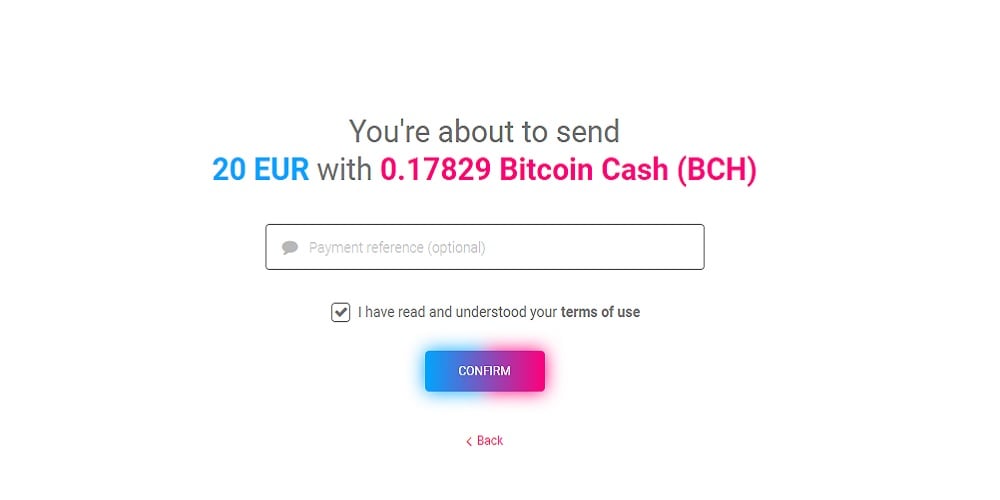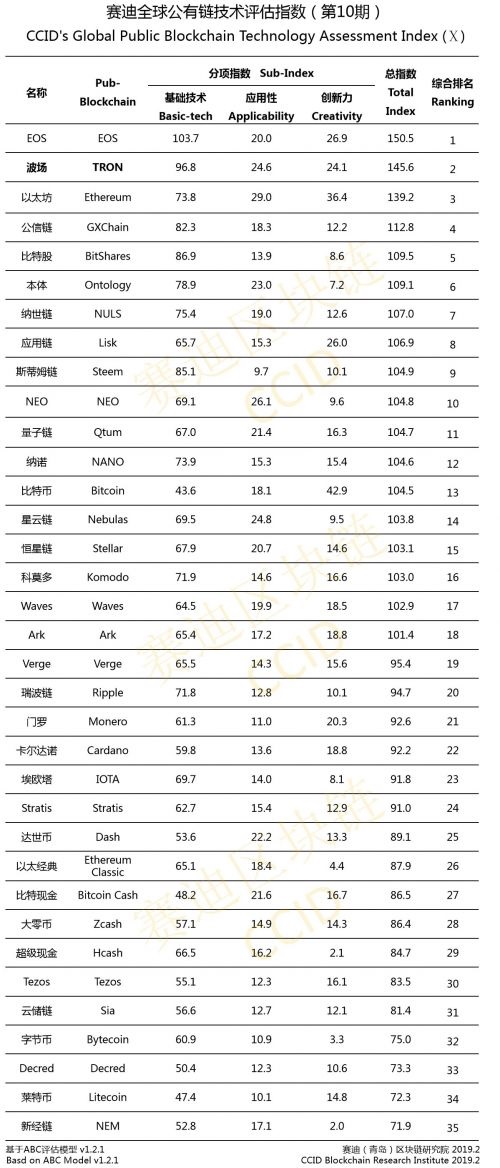Thursday, February 28, 2019
Bitcoin History Part 10: The 184 Billion BTC Bug

There was something unusual about Bitcoin block 74638. It was Core developer Jeff Garzik who first spotted it, commenting on the “quite strange” transaction outputs, which stood at 92233720368.54 BTC apiece. That wasn’t meant to happen. Within an hour, another forum user had started a thread titled “overflow bug serious” in which he implored “We need a fix asap.” It was Aug. 15, 2010, and Bitcoin had just encountered its biggest bug yet.
Also read: Bitcoin History Part 9: Mt. Gox Is Born
Bitcoin Encounters a Very Big Bug
Bitcoin had already endured at least four major bugs or vulnerabilities prior to the integer overflow bug that led to 184 billion BTC being created out of thin air. The Bitcoin wiki lists 40 bugs of varying degrees of severity, with the most recent discovered in February 2019. CVE-2010-5139, however, was unlike anything the Bitcoin community had ever encountered in 2010 — or has seen since.

The bug that Garzik, among others, uncovered in block 74638 was Bitcoin’s first inflation bug. Given that the cryptocurrency’s total supply is meant to be capped at 21 million, the addition of 184 billion coins was a major problem to put it mildly. An integer overflow had caused a negative total transaction value. As Bitcointalk forum user Ifm explained:
Normally the inputs are equal to the outputs of a transaction. The exception is when there is a ‘fee’ charged for the transaction. The net allows anyone to voluntarily pay any amout for a fee. So when the sum was negative the difference from the input looked like a fee. It slipped thru all the checks.
An unknown attacker had discovered the bug and used it to generate a ridiculously high number of bitcoins. Had they set their sights on a more modest total, it is possible their exploit might have lain undiscovered for longer than the 90 minutes it took for the scheme to be spotted. Once discovered, it was inevitable that a patch would be rushed through, and so it came to pass. Within two hours of Common Vulnerability and Exposure 2010-5139 striking, Core developers Gavin Andresen and Satoshi Nakamoto were on the case, and the 184 billion BTC transaction was purged from block 74638.

“Once more than 50% of the node power is upgraded and the good chain overtakes the bad, the 0.3.10 nodes will make it hard for any bad transactions to get any confirmations,” reassured Satoshi. Bitcoin’s creator took a bug of this magnitude seriously, and posted more than a dozen times in the thread devoted to its discovery and eradication. Within five months of the incident, Satoshi would leave the community he founded for good. In his wake, he left a cryptocurrency that would prove strong enough to survive the next eight years and beyond.
Bitcoin History is a multipart series from news.Bitcoin.com charting pivotal moments in the evolution of the world’s first and finest cryptocurrency. Read part nine here.
Images courtesy of Shutterstock.
Need to calculate your bitcoin holdings? Check our tools section.
The post Bitcoin History Part 10: The 184 Billion BTC Bug appeared first on Bitcoin News.
via Kai Sedgwick
Cryptocurrency Accounts for Less Than 2% of All Japanese Money Laundering Cases

Money laundering cases related to cryptocurrencies in Japan have increased significantly in 2018. Nevertheless, their number remains a fraction of the total. According to the Japanese press, the majority of reported money laundering instances actually involve banks and other traditional financial institutions.
Also read: Platform for Crypto Payments to Bank Accounts Launching in the UK
Most Instances Involve Banks and Credit Card Companies
The number of cases of suspected money laundering linked to cryptocurrencies reported in Japan surpassed 7,000 last year, the Japan Times reported, quoting the National Police Agency. The figure represents a 10-fold increase in comparison with the 669 cases registered between April and December of 2017, when crypto exchange operators were obliged to report suspicious transactions that may be linked to the movement of illicit funds.

The Japanese police detailed that in some of the cases, users with different names and birth dates have been sharing the same identification document. Others have been found to log in from foreign jurisdictions, despite providing Japanese addresses in their accounts.
In 2018 alone, 417,465 cases of suspected money laundering and other abuses were reported to the law enforcement agencies in Japan. That’s over 17,000 more cases than the previous year.
It should be noted, however, that the majority of these cases involve banks and other financial institutions, comprising 346,014 reports, and credit card companies 15,114. That means the cases related to cryptocurrencies, the exact number of which is 7,096, are less than 1.7 percent of the total.
Japanese Police to Train Data Analysis Specialists
The National Police Agency of Japan plans to take steps in response to the rising number of suspicious transactions. One of the initiatives involves the training of specialists in financial data analysis. Artificial intelligence technology may be employed to detect illegal trades. These systems can be taught to recognize patterns related to money laundering and other illicit transactions.

The Japan Times points out that the country has also seen some large cryptocurrency heists in recent years. These include the Mt. Gox hack in 2014 when $433 million worth of cryptocurrency was stolen from the digital asset exchange. Another attack, against the Japanese exchange Coincheck last January, led to the loss of approximately $550 million of the cryptocurrency nem.
Cases such as these were the main reason for a decision by the Japan’s Financial Services Agency to order several crypto trading platforms based in the country to improve their internal controls. The regulator also asked for the introduction of preventive measures against money laundering.
What do you think about the data released by the Japanese police? Share your thoughts on the topic of money laundering and cryptocurrency in the comments section below.
Images courtesy of Shutterstock.
Make sure you do not miss any important Bitcoin-related news! Follow our news feed any which way you prefer; via Twitter, Facebook, Telegram, RSS or email (scroll down to the bottom of this page to subscribe). We’ve got daily, weekly and quarterly summaries in newsletter form. Bitcoin never sleeps. Neither do we.
The post Cryptocurrency Accounts for Less Than 2% of All Japanese Money Laundering Cases appeared first on Bitcoin News.
via Lubomir Tassev
35 Countries Urged to Regulate Cryptocurrency Exchanges Like Commercial Banks

The Financial Action Task Force has finalized its requirements for the supervision and monitoring of cryptocurrency service providers. The inter-governmental body has reportedly urged all of its 35 member countries to regulate crypto exchanges in the same manner they regulate commercial banks.
Also read: SEC Chair Explains Key Upgrades Needed for Bitcoin ETF Approval
Regulating Like Commercial Banks
Supervision standards for cryptocurrency exchanges were discussed at a Financial Action Task Force (FATF) meeting which took place in France on Feb. 22. Business Korea reported South Korea’s top financial regulator, the Financial Services Commission, describing on Tuesday after attending the meeting that the FATF will tighten the supervision standards on cryptocurrency exchanges. The publication elaborated:
The FATF urged the financial authorities of the member states to regulate cryptocurrency exchanges in the same manner they regulate commercial banks.
The task force asserted that these measures are necessary “in order to prevent cryptocurrencies from being misused for illegal transactions,” the news outlet conveyed.

An inter-governmental body established in 1989, the FATF sets standards and promotes effective implementation of legal, regulatory and operational measures for combating money laundering, terrorist financing and other related threats to the integrity of the international financial system. There are currently 35 member countries, plus Hong Kong, the European Commission and the Gulf Cooperation Council.
The member countries are Argentina, Australia, Austria, Belgium, Brazil, Canada, China, Denmark, Finland, France, Germany, Greece, Iceland, India, Ireland, Israel, Italy, Japan, Republic of Korea, Luxembourg, Malaysia, Mexico, Netherlands, New Zealand, Norway, Portugal, Russian Federation, Singapore, South Africa, Spain, Sweden, Switzerland, Turkey, the U.K., and the U.S.
Requirements for Member Countries
The FATF announced at the meeting that it had finalized “detailed implementation requirements for effective regulation and supervision / monitoring of virtual asset services providers.” The measures will be formally adopted as part of the FATF standards in June. The Financial Action Task Force explained:
For the purposes of applying the FATF recommendations, countries should consider virtual assets as ‘property,’ ‘proceeds,’ ‘funds,’ ‘funds or other assets,’ or other ‘corresponding value.’

Furthermore, “Countries should apply the relevant measures under the FATF recommendations to virtual assets and virtual asset service providers,” the task force detailed, emphasizing that the member countries should require these providers to “identify, assess, and take effective action to mitigate their money laundering and terrorist financing risks.” In addition, these providers “should be required to be licensed or registered.”
However, the FATF clarified that “A country need not impose a separate licensing or registration system with respect to natural or legal persons already licensed or registered as financial institutions” that are permitted to provide crypto asset services and are already subject to obligations under its recommendations.
What do you think of the FATF’s crypto regulatory guideline for its member countries? Let us know in the comments section below.
Images courtesy of Shutterstock and the FATF.
Need to calculate your bitcoin holdings? Check our tools section.
The post 35 Countries Urged to Regulate Cryptocurrency Exchanges Like Commercial Banks appeared first on Bitcoin News.
via Kevin Helms
In the Daily: Fidelity Investments, London Stock Exchange Group, Sofi

In this edition of The Daily we feature a number of traditional financial companies that are stepping into the crypto assets world. Fidelity Investments backs Coin Metrics, London Stock Exchange Group funds tokenization platform Nivaura and Sofi is set to add crypto support.
Also Read: Top Business School in India to Offer Advanced Blockchain Program for Professionals
Fidelity Investments Backs Coin Metrics
Coin Metrics Inc, a provider of crypto market and network data, has announced it closed a $1.9 million seed round of venture funding. The financing came from Fidelity Investments, Highland Capital Partners and Dragonfly Capital, with Castle Island Ventures leading the round. “All of our investors are bought into the idea that the next phase of cryptoasset investing requires robust comprehensive data and infrastructure. Having this premier group as investors is a great vote of confidence,” said Tim Rice, CEO of Coin Metrics.
The Fidelity Digital Assets team explained in a Medium post about the matter that good data sets are critical factors in the ability to analyze trends, visualize the growth of networks, and spot challenges, adding that many of the institutional investors they talk with also require a clear understanding of which data to consider as they explore crypto assets.
LSEG Funds Tokenization Platform
London Stock Exchange Group (LSEG) has revealed it led a $20 million strategic investment round in the tokenisation platform Nivaura. The startup’s focus is on the deployment of digital investment banking solutions for banks, exchanges and other financial institutions. LSEG’s head of international development told Reuters that the group was seeking to leverage the technology to develop new products, boost efficiency and support growth.

Nivaura automates the issuance and administration of instruments such bonds, loans, equity, and structured products, which the company claims can reduce time to market by as much as 60-80 percent. This new $20m investment is meant to allow it to expand its leadership, business development and technical teams. It also plans to enter new jurisdictions and to cover new asset classes.
$4 Billion Fintech Startup Sofi to Add Crypto Support
Sofi is a company valued at over $4 billion which is focusing on providing millennials with student loan refinancing, personal loans, mortgages and other wealth management and financial services. It is now planning to enter the crypto assets market by enabling its users to follow and buy coins via a partnership with crypto exchange Coinbase. These new features will reportedly be made available to users in the second quarter of 2019.
“Our target audience wants to see what the price of cryptocurrency is, and to buy it,” CEO Anthony Noto told reporters at Sofi’s New York office, according to CNBC. “They have a desire to do that and in many cases they already are.”
What do you think about today’s news tidbits? Share your thoughts in the comments section below.
Images courtesy of Shutterstock.
Verify and track bitcoin cash transactions on our BCH Block Explorer, the best of its kind anywhere in the world. Also, keep up with your holdings, BCH and other coins, on our market charts at Satoshi’s Pulse, another original and free service from Bitcoin.com.
The post In the Daily: Fidelity Investments, London Stock Exchange Group, Sofi appeared first on Bitcoin News.
via Avi Mizrahi
Wednesday, February 27, 2019
Putin’s Order: Russia to Adopt Cryptocurrency Regulation by July This Year

Russia’s President Vladimir Putin has instructed his country’s government to adopt federal laws relating to cryptocurrency by July this year. Russia has earlier broadened the definition of “digital financial assets” to include cryptocurrencies. Putin’s latest order resembles one he made regarding crypto regulation last year.
Also read: SEC Chair Explains Key Upgrades Needed for Bitcoin ETF Approval
Putin’s New Order
Putin has approved a list of instructions for 47 orders, according to a document posted on the Kremlin website on Wednesday. Among them is an order for the government to work with the State Duma, the lower house of parliament, to ensure adoption of “federal laws aimed at the development of the digital economy.” They include “determining the procedure for conducting civil law transactions in electronic form, as well as regulating digital financial assets and attracting financial resources using digital technologies,” the order details.

The deadline listed on the order is July 1, 2019. Responsible officials are Russian Prime Minister Dmitry Anatolyevich Medvedev and State Duma Chairman Vyacheslav Viktorovich Volodin.
As news.Bitcoin.com previously reported, the original texts of the proposed regulation for cryptocurrencies have been extensively revised. While references to cryptocurrency, tokens, mining, and smart contracts in the bills have been removed, the legal definition of “digital financial assets” has been broadened to cover cryptocurrencies.
Multiple Delays
Putin’s latest order resembles one he made last year when he instructed the government to work with the central bank to “ensure that changes are made to the legislation of the Russian Federation” to determine the legal status of digital technologies including cryptocurrency, token, and smart contract. He put Medvedev and the central bank governor, Elvira Nabiullina, in charge of completing the task.

In May last year, three bills aimed at regulating cryptocurrencies were filed in the State Duma and were scheduled for adoption in July, as ordered by Putin. However, Russian lawmakers could not agree on the appropriate legal framework after the first reading in the spring.
The State Duma plans to review the bills again in March, Rambler news outlet reported last week, noting that Oleg Nikolayev, a member of the State Duma Committee on Economic Policy, confirmed that the discussion is at the final stage of development.
Medvedev said in January that there is no reason to bury cryptocurrencies. “As with any social phenomenon, any economic institute, there are both bright sides and dark sides,” he described. Earlier this month, the Russian Minister of Justice voiced his belief that cryptocurrencies do not need to be legally defined yet.
What do you think of Putin’s order? Do you think Russia will start regulating the crypto industry by July this year? Let us know in the comments section below.
Images courtesy of Shutterstock.
Need to calculate your bitcoin holdings? Check our tools section.
The post Putin’s Order: Russia to Adopt Cryptocurrency Regulation by July This Year appeared first on Bitcoin News.
via Kevin Helms
Cryptopia Lost Almost a Tenth of Its Assets in January Hack

New Zealand cryptocurrency exchange Cryptopia has published a series of tweets detailing the extent of the losses it suffered during an attack by hackers in January. It said: “We have calculated that worst case 9.4 percent of our total holdings was stolen.”
Also read: 125-Year Old Swiss Bank Julius Baer Enters Cryptocurrency Market
‘Securing Individual Wallets’
The Christchurch-based exchange explained that it is “continuing to assess the impact incurred as a result of the hack,” but did not provide the value of the heist in dollar terms.
Since Jan. 15, when Cryptopia announced the cyber attack, details about the theft have largely remained unclear and the amount lost has not been made public. The exchange has kept a tight lid on information, claiming the theft was now a police matter, much to the chagrin of thousands of customers.

However, data analytics company Elementus estimated that the hackers made off with $16 million worth of ethereum and ERC20 tokens. The company described the theft as “weird” as it was conducted carefully, in a series of small transfers targeting individual wallets. Normally hacks tend to be quick one-time events, with attackers taking advantage of a vulnerability and then immediately trying “to launder the money in one shot,” it said.
Even after police had moved in, the hacker reportedly continued with the attack on the New Zealand trading platform, stealing $181,000 worth of ethereum from about 17,000 wallets. Elementus postulated that it is possible future hackers may try and copy the Cryptopia technique in order to avoid detection.
In a series of tweets on Feb. 27, Cryptopia claimed to be “securing each wallet individually to ensure the exchange is fully secure when we resume trading. As a result of the new wallets please refrain from depositing any funds into old Cryptopia addresses.” The exchange said it would provide more updates starting Thursday, Feb. 28.
Investors Unhappy
While many users welcomed the break of silence from Cryptopia, others laughed off the thought of making new deposits into an exchange still smarting from a multi-million-dollar attack. “They are afraid to open because they know everyone will withdraw. And that’s the end of that exchange,” said @cryptojokerrr.

Jason Smith (@iwearahoodle) stated: “Not sure deposits into Cryptopia are going to be the main problem.” Another user said: “Don’t worry we don’t deposit we need withdrawal.”
On Feb. 14, Cryptopia reported that it had been granted access to its building by the New Zealand police as investigations continued. Police spoke of how the investigation “was progressing well” at the time. A detective inspector with the New Zealand police stated then: “The focus is on identifying those behind this offending and retrieving the stolen cryptocurrency. This investigation is expected to take a considerable amount of time to resolve due to the complexity of the cyber environment.”
What do you think about the Cryptopia saga? Let us know in the comments section below.
Images courtesy of Shutterstock and Cryptopia.
Express yourself freely at Bitcoin.com’s user forums. We don’t censor on political grounds. Check forum.Bitcoin.com
The post Cryptopia Lost Almost a Tenth of Its Assets in January Hack appeared first on Bitcoin News.
via Jeffrey Gogo
Platform for Crypto Payments to Bank Accounts Launching in the UK

A company based in London has announced it’s launching a payment service that can help increase the mainstream adoption of cryptocurrencies. It allows users to send or spend digital coins which are converted and then transferred in the form of fiat money to the recipient’s bank account.
Also read: ‘Bitcoin to the Moon’ Signs Appear on Ukrainian Tram
Aave Pay Supports 12 Cryptocurrencies
Aave Pay is an online platform that can be employed to pay with cryptocurrencies where regular bank transfers are accepted. Users will also be able to send money to family and friends as well as to pay utility bills.
Businesses can take advantage of the service to pay employee salaries and income taxes. Other commercial or corporate expenses can be covered as well with digital coins converted and sent to fiat-based accounts.
Aave Pay has been announced as both a web-based and a mobile application. While the online platform is live at the moment, there is little information on how to download, install and use the mobile app and its features.

“This new application eliminates the obstacles of using crypto in our everyday lives,” said company CEO Stani Kulechov. He added that Aave Pay addresses the spendability problem associated with cryptocurrencies and “builds a bridge for crypto to cross over into mainstream use.”
According to its website, the platform currently supports 12 cryptocurrencies: bitcoin core (BTC), bitcoin cash (BCH), ethereum (ETH), cardano (ADA), ripple (XRP), monero (XMR), litecoin (LTC), zcash (ZEC), stellar lumen (XLM), dash, dai, and lend.
Transfers Can Be Made to Accounts in 6 Fiat Currencies
To use Aave Pay, you need to sign up, providing your full name, email address, country of residence and citizenship, and also pass verification. Then in the “Pay” section you can choose the crypto you want to send and set the fiat currency that will be deposited into the recipient’s bank account. Euro, U.S. dollar, British pound, Swiss franc, Australian dollar, and Indian rupee are the available options.
The recipient’s name and Iban number are also required to perform a transaction. Once the information is provided, Aave Pay calculates an exchange rate which remains fixed for 15 minutes. When a crypto deposit is confirmed, a fiat payment is sent to the bank account. The transaction can take up to 1-3 business days to complete.

“We are taking the concept of holding cryptocurrencies further, in a way that has not been done before, breaking the paradigm that cryptocurrencies are only assets people invest in and cannot be used as traditional currencies,“ said Jordan Lazaro Gustave, COO of Aave.
The U.K. startup is also offering a crypto-fiat lending service that uses digital assets as collateral. In the beginning of February, its ethereum-based platform called ETH Lend added support for BTC. Last month, Aave was granted two Estonian licenses that allow it to provide crypto exchange and wallet services.
Do you think apps like Aave Pay help the adoption of cryptocurrencies for payments? Tell us in the comments section below.
Images courtesy of Shutterstock.
Make sure you do not miss any important Bitcoin-related news! Follow our news feed any which way you prefer; via Twitter, Facebook, Telegram, RSS or email (scroll down to the bottom of this page to subscribe). We’ve got daily, weekly and quarterly summaries in newsletter form. Bitcoin never sleeps. Neither do we.
The post Platform for Crypto Payments to Bank Accounts Launching in the UK appeared first on Bitcoin News.
via Lubomir Tassev
Top Business School in India to Offer Advanced Blockchain Program for Professionals

A top business school in India is set to offer an advanced blockchain program for professionals. It marks the latest case of global academic institutions trying to answer the demand from students and industry for more education on crypto assets.
Also Read: University of Michigan Endowment Backs Crypto VC Fund
Indian Institute of Management Calcutta to Teach Crypto
The Indian Institute of Management Calcutta (IIM Calcutta), a top ranked public business school in Kolkata, West Bengal, plans to start a new cryptocurrency-related education program in May 2019. The Advanced Programme in Fintech and Financial Blockchain (APFFB) is meant to address the giant country’s talent shortage facing the financial technology industry. The program is designed for middle and senior management professionals in organizations that need to develop a digital finance strategy.

“A vast majority of firms in the banking and financial sector believe that the lack of adequate FinTech talent is an existential threat to their future. Our FinTech programme, designed with today’s management and finance professionals in mind, will leverage the deep research and consulting expertise of IIM Calcutta faculty and our state-of-art Finance Lab. We plan to equip and enable 2000 Fintech professionals in the next few years,” the program’s director, Prof. Indranil Bose, explained to Indian media.
Advanced Classes on Crypto Assets and Tokens
According to the school’s website, the duration of the program will be six months and it will cost students about Rs. 3,20,000 ($4,500). Course content will include classes on Data Analysis and Interpretation, Financial Markets and Products, Understanding Banks and other Financial Institutions, Foundations of Fintech, Digital Payments, All About Blockchain, Digital Disruptions in Financial Services, Crypto Assets and Tokens, Risk Management for Fintech, and Data Driven Financial Analytics.

Academic institutions all over the world have already been offering classes on cryptocurrencies and related technologies for a couple of years now. This month Shanghai’s Fudan University launched a blockchain R&D center and in January the University of California, Berkeley formed a new blockchain-focused startup accelerator program for its students.
What do you think about this business school offering a program on crypto assets? Share your thoughts in the comments section below.
Images courtesy of Shutterstock.
Verify and track bitcoin cash transactions on our BCH Block Explorer, the best of its kind anywhere in the world. Also, keep up with your holdings, BCH and other coins, on our market charts at Satoshi’s Pulse, another original and free service from Bitcoin.com.
The post Top Business School in India to Offer Advanced Blockchain Program for Professionals appeared first on Bitcoin News.
via Avi Mizrahi
Cryptocurrency Jobs Peak in These Indian Cities

Demand for skilled professionals in the crypto space has been steadily rising, according to new data that ranks cities in India based on the number of jobs in the cryptocurrency field. Some cities such as Mumbai dropped several places from last year’s ranking while a couple of others are new to the list.
Also read: Indian Supreme Court Gives Government 4 Weeks to Produce Crypto Regulation
Hottest Cities for Crypto Jobs
According to new data from job listing site Indeed, Bengaluru is the number one city in India for crypto jobs, followed by Pune, the second largest city in the Indian state of Maharashtra. Mumbai dropped from the second hottest place for crypto jobs last year to the seventh place this year. Money Control elaborated:
Bengaluru maintained the lead as the city with the most jobs in the cryptocurrency field … Pune is followed by Hyderabad, Noida and Gurgaon, making up the top five destinations for crypto-careers in India.
Two cities which were not on the previous list made the top ten list this year: Ahmedabad and Thiruvananthapuram. “While northern markets see consistent demand, the numbers still do not compare to their southern counterparts,” the news outlet noted. Bengaluru is home to Unocoin, a major cryptocurrency exchange in India.

“Given the enormous scope of blockchain technology, crypto careers offer newer avenues to explore, provided one has the requisite skills,” explained the director of Indeed India, Venkata Machavarapu. “Demand for such skilled professionals has been steadily on the rise, as observed in 2018, with technology hubs such as Bengaluru and Hyderabad continuing to create the maximum number of opportunities.”
Uncertain Crypto Regulatory Environment
The Indian government is actively working on cryptocurrency regulation. The country’s supreme court on Monday gave the government four weeks to come up with a clear legal framework for cryptocurrencies. The court will then hear the petitions against the crypto banking ban by the central bank, the Reserve Bank of India (RBI), as well as other crypto-related petitions.

The central bank issued a circular in April last year, banning all financial institutions under its control from providing services to crypto businesses, effective three months later. Since then, a number of crypto businesses have been hampered. Zebpay, formerly one of the largest crypto exchanges in the country, had to close down its local crypto exchange activities due to the banking restriction. Other exchanges have come up with creative solutions such as offering exchange-escrowed peer-to-peer (P2P) services.
The government committee headed by Subhash Chandra Garg, Secretary of Economic Affairs, is in charge of drafting the regulation. Recommendations are reportedly being finalized. In January, the Ministry of Finance invited law firm Nishith Desai Associates to present their suggestions for the crypto regulation. Last week, Indian policymakers gathered at a blockchain summit and agreed on the importance of establishing a legal framework for cryptocurrencies.
What do you think of these top cities for crypto jobs in India? Let us know in the comments section below.
Images courtesy of Shutterstock, Money Control, and news.Bitcoin.com.
Need to calculate your bitcoin holdings? Check our tools section.
The post Cryptocurrency Jobs Peak in These Indian Cities appeared first on Bitcoin News.
via Kevin Helms
Tuesday, February 26, 2019
China’s New Crypto Ranking: Bitcoin Upgraded, Tron Debuts Near Top

China’s Center for Information and Industry Development has released its latest ranking of crypto projects. A total of 35 projects were evaluated this month, with Tron debuting near the top of the list. Meanwhile, Bitcoin has climbed up the ranking slightly.
Also read: Bitcoin Climbs up China’s First Crypto Ranking of 2019
New Ranking, Tron Added
The Center for Information and Industry Development (CCID), under China’s Ministry of Industry and Information Technology, released the 10th update of its crypto project ranking on Tuesday. The center noted that this is the second update this year and 35 crypto projects were evaluated, with Tron being the only addition since the last evaluation.
EOS still occupies the number one spot. Tron debuted at number two, dethroning Ethereum, which now ranks third. BTC ranks 13th this month, up from the 15th place the previous month. BCH ranks 27th, a slight improvement from the 28th position in the previous ranking.

The center described newcomer Tron, launched in May last year, as a “low-level public chain with high throughput, high expansion and high reliability,” adding that it is “compatible with the Ethereum smart contract.” It further claims that Tron’s “chain transactions are more active,” noting that there are now over 200 Tron Dapps. The total evaluation index for Tron is 145.6 which is the second highest on the overall list, behind only EOS.
3 Sub-Rankings
The CCID explained that this latest assessment still uses the three primary indicators: basic technology, applicability, and creativity. However, for the latest ranking, the weight of the creativity indicator of the total index has been increased. The crypto projects that have improved the most overall compared to the previous period are Nano, Verge and Qtum.

For the basic technology category, the top five public chains are EOS, Tron, Bitshares, Gxchain, and Nano, the CCID detailed. This category primarily evaluates the technical realization level of the public chain and examines its function, performance, safety and decentralization.
The top five projects for the applicability category are Ethereum, NEO, Nebulas, Tron, and Ontology. This category mainly evaluates the comprehensive level of public chain support for practical applications, including node deployment, wallet applications, development support and application implementations.
The creativity category focuses on continuous innovation in the public chain, including the number of developers, code updates, and code impact. The top five crypto projects in this category are Bitcoin, Ethereum, EOS, Lisk, and Tron.
What do you think of China’s latest crypto project ranking? Let us know in the comments section below.
Images courtesy of Shutterstock and the CCID.
Need to calculate your bitcoin holdings? Check our tools section.
The post China’s New Crypto Ranking: Bitcoin Upgraded, Tron Debuts Near Top appeared first on Bitcoin News.
via Kevin Helms
125-Year-Old Swiss Bank Julius Baer Enters Cryptocurrency Market

Julius Baer, the 125 year-old Swiss private bank, has announced a partnership with cryptocurrency banking startup Seba Crypto AG. The bank did not release details of the agreement, but stressed that it was responding to increasing demand from customers for the capability to store, trade and invest in crypto assets.
Also read: Nasdaq’s New BTC and ETH Indices Launch With Real-Time Price Data
‘Bridging the Traditional and Digital Assets Divide’
In a statement released Feb. 26, Julius Baer, which already holds a minority equity stake in Seba, said the deal will “provide its clients with access to a range of new digital asset services.” The Zurich-based bank stated that it aims to bridge the gap between traditional and digital assets, taking advantage of Seba’s innovative platform.

“At Julius Baer, we are convinced that digital assets will become a legitimate sustainable asset class of an investor’s portfolio,” Peter Gerlach, head markets at Julius Baer, said in the statement. However, the deal is dependent on Zug-headquartered Seba being granted a banking and securities dealing license by Switzerland’s financial markets regulator FINMA later this year.
A number of Swiss banks, including Swissquote and Falcon, are already active in the cryptocurrency space, but Julius Baer’s entry has drawn keen interest. Current Seba chairman Andreas Amschwand, who is also a board member at Julius Baer, is thought to have played a key role in facilitating the partnership between the two companies, according to Swiss news outlet Swissinfo.ch. Anschwand is, however, expected to step down from Julius Baer in April.
‘Raising the Bar’
Julius Baer, which has about 382 billion Swiss francs ($382 billion) of assets under management, is thought “to have raised the bar in the ongoing merger of crypto assets into the traditional financial sector.” This is significant in the sense that legacy banks in Switzerland and elsewhere have demonstrated a certain reluctance to integrate cryptocurrency products into their services, citing a plethora of potential risks. By dabbling into crypto, “Julius Baer has signaled that it believes the risks to be acceptable,” Swissinfo said.

Speaking on the partnership, Guido Buehler, chief executive officer of Seba, stated: “We are very proud to have Julius Baer as an investor. Seba will enable easy and safe access to the crypto world in a fully regulated environment.” Seba is expected to become one of just a few startups in the crypto space to close the regulatory gap between conventional and digital assets.
Switzerland has taken a progressive stance toward cryptocurrencies by legalizing their use and formalizing crypto transactions in a range of different contexts. But some crypto projects still struggle to open bank accounts, and cryptocurrency-focused bankers and investors still complain about a relative lack of regulatory clarity, as it remains unclear whether cryptocurrencies can be considered legal tender in certain contexts.
What do you think about the partnership between Julius Baer and Seba? Let us know in the comments section below.
Images courtesy of Shutterstock and Julius Baer.
Express yourself freely at Bitcoin.com’s user forums. We don’t censor on political grounds. Check forum.Bitcoin.com
The post 125-Year-Old Swiss Bank Julius Baer Enters Cryptocurrency Market appeared first on Bitcoin News.
via Jeffrey Gogo
Warren Buffett Calls Bitcoin a Delusion – But an Ingenious One

Warren Buffett’s opinion of bitcoin has evolved. In a recent interview, he described the cryptocurrency as ingenious but also called it a delusion. While admitting that his opinion of bitcoin has been upgraded, the CEO of Berkshire Hathaway asserted that “it attracts charlatans.”
Also read: SEC Chair Explains Key Upgrades Needed for Bitcoin ETF Approval
An ‘Ingenious’ Delusion
Berkshire Hathaway chairman and CEO Warren Buffett voiced his updated opinion about bitcoin in an interview with Cnbc’s Becky Quick on Monday. Emphasizing that his position on the cryptocurrency has not changed, he asserted:
Bitcoin, it’s ingenious. And blockchain is important. But bitcoin has no unique value at all. It doesn’t produce anything. You can stare at it all day, and no little bitcoins come out or anything like that. It’s a delusion, basically.

The 88-year-old investor and businessman has repeatedly criticized cryptocurrencies over the last few years for having no value. Ahead of a Berkshire Hathaway annual shareholder meeting last year, he told Quick that bitcoin is “probably rat poison squared.” According to Cnbc’s archive, he also used words such as a “mirage,” “not a currency,” and “tulips” to describe the cryptocurrency at the time.
Improved Outlook
Noting that Buffett’s stance on bitcoin has “gone from rat poison squared to a delusion,” Quick commented, “That’s kind of an upgrade.” Buffett did not disagree. He replied with “Well, yeah, you know, who knows where we’ll be next year.” The Oracle of Omaha admitted:
It was a very ingenious thing, to figure out how to have limited supply and make it harder and more expensive to create, all that sort of thing … This was explained to me by people a lot smarter than I am, but they say blockchain does not depend on bitcoin.
Bitcoin ‘Attracts Charlatans’
However, Buffett had more insults on hand for the cryptocurrency. He claims that bitcoin “attracts charlatans,” noting that “If you do something phony by going out and selling yo-yos or something, there’s no money in it — but when you get into Wall Street, there’s huge money,” CNBC quoted him as saying.
Buffett is not the only one still skeptical of bitcoin. The publication noted that among those who have questioned bitcoin’s legitimacy are Bill Gates, Nouriel Roubini, Robert Shiller, and fund managers Ray Dalio and Howard Marks. J.P. Morgan CEO Jamie Dimon has also openly criticized the cryptocurrency. After calling it a fraud in 2017, he admitted in 2018 that he regretted that statement, and recently his company unveiled a plan for its own dollar-linked stablecoin.
What do you think of Warren Buffett’s opinion of bitcoin? Let us know in the comments section below.
Images courtesy of Shutterstock.
Need to calculate your bitcoin holdings? Check our tools section.
The post Warren Buffett Calls Bitcoin a Delusion – But an Ingenious One appeared first on Bitcoin News.
via Kevin Helms
Nasdaq’s New BTC and ETH Indices Launch With Real-Time Price Data

The Nasdaq stock exchange has officially listed bitcoin core and ethereum indices on its platform of 4,000 global indices starting Monday, Feb. 25. The Bitcoin Liquid Index (BLX) and the Ethereum Liquid Index (ELX) provide real-time information on the price of 1 BTC and 1 ETH in dollar terms, based on the most liquid ends of their markets. Both indices, created by market data company Brave New Coin, will be refreshed every 30 seconds.
Also read: Bitfinex Recovers $106,000 of Stolen BTC With U.S Government Help
Crypto Indices to Capture Data From Multiple Exchanges
According to Nasdaq, the BLX and ELX work by capturing data from multiple exchanges to provide a single price point for bitcoin core and ethereum which “helps traders get in and out of a given position.”
Nasdaq and Brave New Coin (BNC) claim the methodology has been verified by independent auditors and against key International Organisation of Securities Commissions (IOSCO) principles. “The methodology adds to the transparency of pricing crypto assets, a concern that has prevented regulators in approving retail products,” said BNC in a statement.

Announcing the cryptocurrency indices two weeks ago, Nasdaq stated:“The BLX is one of the most widely-referenced BTC indices among crypto traders and has been calculated back to 2010. Likewise, the ELX has been calculated back to 2014.”
Nasdaq’s latest move is seen as crucial to introducing cryptocurrency to traditional stock market investors on Wall Street and elsewhere, thereby driving mainstream adoption. The stock exchange has swam against the tide in being drawn to crypto assets, starting with publishing analytical reports on Bitcoin and partnering with Vaneck to launch BTC futures trading in a falling market last year.
‘Crypto Derivatives Wave Inevitable’
The two new indices join several dozen of Nasdaq’s indices including the Nasdaq Composite, its main index, and the Nasdaq 100, through its Global Index Data Service. The data service is a real-time feed that consolidates all Nasdaq indexes and ETF valuation data, including third-party partner data.
“The crypto derivative wave is inevitable,” Fran Strajnar, chief executive officer of Brave New Coin commented. “Once custody was solved, first with Fidelity’s announcements last November, and now with indices that align with IOSCO principles being available through the Nasdaq, there’s going to be a rush to produce all manner of financial instruments, which the institutional users have been asking for, for almost 3 years now,” he added.

The Nasdaq is the world’s second largest stock market by capitalization, behind only the New York Stock Exchange. More than 3,400 companies are listed on the bourse, which boasts a total market value of $10 trillion. Cryptocurrency is expected to benefit from the exchange’s expansive reach. Acceptance by institutional investors which dominate trade on the Nasdaq is regarded by some as a major step towards mainstreaming virtual currencies as well as increasing adoption.
Do you think the bitcoin core and ethereum indices on Nasdaq will help improve cryptocurrency adoption? Let us know in the comments section below.
Images courtesy of Shutterstock.
Express yourself freely at Bitcoin.com’s user forums. We don’t censor on political grounds. Check forum.Bitcoin.com
The post Nasdaq’s New BTC and ETH Indices Launch With Real-Time Price Data appeared first on Bitcoin News.
via Jeffrey Gogo
In the Daily: Bitcoin Cash on Amazon Show, Bitwarden, Coinbin, Huobi Australia

In this edition of The Daily we cover an Amazon Prime show that features Bitcoin Cash (BCH), the open source password manager Bitwarden that now accepts crypto payments, a declaration of bankruptcy by Coinbin and the closure of Huobi’s Australian office.
Also Read: Hong Kong Cryptocurrency Exchange Coinsuper Shifts Focus to Institutional Investors
Bitcoin Cash Featured on Amazon Show
This Giant Beast That is the Global Economy is a new documentary show on Amazon Prime Video hosted by Harold and Kumar star and former White House Associate Director of Public Engagement, Kal Penn. It offers viewers an interesting and fun take on various aspects of the modern global economy.
The seventh episode of the series, “Is Money Bullshit?,” prominently features Bitcoin Cash as Kal learns about the invention of cryptocurrency. To demonstrate how crypto is used for real world payments, the host and his guest go into a convenience store with a Bitcoin Cash Accepted Here sticker, pick up a drink and a snack and quickly pay with BCH by scanning a QR code presented by the merchant with the wallet app on a mobile phone.
Bitwarden Now Accepting BCH Payments
Bitwarden, a free and open source multi-device password manager, has announced that bitcoin core (BTC) and bitcoin cash (BCH) are now accepted methods of payment for both its premium membership and organization plan purchases. A premium Bitwarden account adds several features to the free service including 1GB encrypted file storage, two-step login with YubiKey, FIDO U2F, & Duo, password hygiene & vault health reports, TOTP authenticator key storage & code generation, and priority customer support.
Coinbin Declares Bankruptcy
South Korean cryptocurrency exchange Coinbin is to undergo bankruptcy proceedings following the loss of about $26 million, according to local media reports. Coinbin is the company that took over the operations, assets and client book of Youbit in March 2018 after it was driven to bankruptcy due to costly hacking attacks.

“We are preparing to file for bankruptcy due to a rise in debt following an employee’s embezzlement,” Park Chan-kyu, CEO of Coinbin, told local reporters in the company’s Seoul office on February 20. He claimed that the previous CEO of Youbit had committed dereliction of duty when he lost or removed the keys to cryptocurrency wallets belonging to the company.
Huobi Closes Australian Office
The Australian branch of Singapore-based exchange Huobi appears to be the latest victim of crypto winter. The local team has informed Australian clients that starting February 26, 2019, all operations, including the management of the platform and customer support, will be transferred to Huobi Global headquarters. The company has also decided to give up on an AUSTRAC registration, needed for a fiat on-ramp, and to simply keep the exchange in its current crypto-only format.
What do you think about today’s news tidbits? Share your thoughts in the comments section below.
Images courtesy of Shutterstock.
Verify and track bitcoin cash transactions on our BCH Block Explorer, the best of its kind anywhere in the world. Also, keep up with your holdings, BCH and other coins, on our market charts at Satoshi’s Pulse, another original and free service from Bitcoin.com.
The post In the Daily: Bitcoin Cash on Amazon Show, Bitwarden, Coinbin, Huobi Australia appeared first on Bitcoin News.
via Avi Mizrahi
